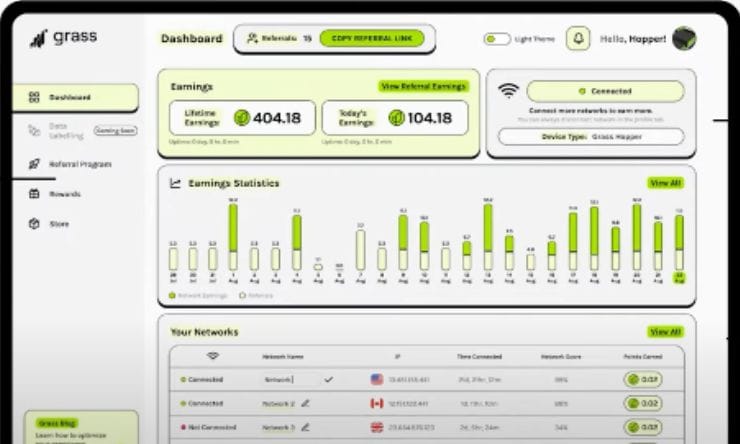Table of Contents
ToggleIntroduction
How SERP Title is My Old Website Key to Better SEO. Have you ever wondered what truly makes a website stand out on search engine results pages? If you’re like many webmasters, you’ve probably poured countless hours into content creation and link building. Yet, there’s one often-overlooked element that can significantly influence your rankings the SERP title. This simple yet powerful tool has been my old website’s secret weapon in the battle for better SEO.
In the world of digital marketing, where competition is fierce and attention spans are short, crafting an effective SERP title might just be the key to unlocking higher visibility. Let’s dive into how this crucial aspect can transform your online presence and help you climb the ranks in search engines.
What is SERP Title and Why is it Important for SEO?

The SERP title, or search engine results page title, is the clickable headline that appears in search results. It’s not just a label; it’s your first chance to grab a potential visitor’s attention.
Why does this matter for SEO? The SERP title plays a critical role in how search engines understand your content. It helps them determine relevance based on user queries. A well-crafted title can improve your chances of ranking higher, as it signals what users can expect from your page.
Moreover, the SERP title directly influences click-through rates (CTRs). An enticing and informative title draws clicks and boosts traffic to your site. This interaction sends positive signals to search engines about the quality of your content, encouraging further ranking improvements down the line. Ignoring the power of SERP titles could mean missing out on valuable organic traffic opportunities.
SERP Title is My Old Website Secret to Higher Rankings
When I revamped my old website, the first thing I focused on was the SERP title. This small element turned out to be a game-changer for my SEO strategy.
A well-crafted SERP title can make all the difference in how search engines perceive your content. It’s not just about keywords; it’s about capturing attention and conveying relevance.
My old titles were bland and uninspiring, which meant fewer clicks. By optimizing them, I transformed my site’s visibility in search results overnight.
I learned that an engaging SERP title hooks potential visitors instantly. It invites users to explore what lies beneath, increasing organic traffic dramatically.
With this newfound focus on titles, my rankings improved significantly over time. What once felt like a hidden secret became central to enhancing user engagement and boosting overall performance online.
The Impact of SERP Title on Click-Through Rates

The SERP title plays a crucial role in determining click-through rates (CTR). It’s the first impression potential visitors have of your content. A well-crafted title can entice users to choose your link over others.
When users scan search results, they often make snap judgments based on titles alone. If yours stands out with engaging language or promises value, it captures attention. This leads to higher clicks and increased traffic.
Conversely, a bland or unclear title may lead to missed opportunities. Users will likely scroll past your listing if it doesn’t resonate with their intent.
Incorporating compelling verbs and numbers can further boost interest. Titles that suggest answers or solutions tend to perform better in attracting clicks as well. Understanding this impact helps you craft titles that not only draw readers but also enhance overall site visibility on search engines.
How to Optimize Your SERP Title for Better SEO
Optimizing your SERP title is essential for capturing attention and improving SEO. Start by ensuring that the title accurately reflects the content of your page. Misleading titles can lead to high bounce rates, which negatively impact rankings.
Incorporate relevant keywords naturally within the first 60 characters. Search engines often truncate longer titles, so placing important terms at the beginning enhances visibility.
Consider audience intent when crafting your SERP title. Think about what users are searching for and tailor your wording accordingly. This will increase relevance and engagement.
Also, utilize numbers or questions in your titles whenever appropriate; they create curiosity and encourage clicks. Aim for clarity over cleverness make it easy for potential visitors to understand what they’ll gain from clicking through.
Keep experimenting with different variations to find out what resonates best with your audience while monitoring performance metrics regularly.
The Importance of Using Keywords in Your SERP Title
Using keywords in your SERP title is crucial for visibility. When search engines crawl your site, they look for relevance. A well-placed keyword signals to them that your content answers user queries.
Think of the SERP title as a billboard. It should attract clicks while communicating what readers can expect inside. If users find familiar terms, they’re more likely to choose your link over others.
Moreover, incorporating primary keywords helps improve rankings. The closer you align with search intent, the better chance you have at securing a top spot on the results page.
Balance is key; don’t overload it with too many keywords. Aim for clarity and value instead. A concise yet descriptive title not only appeals to algorithms but also engages potential visitors effectively.
Best Practices for Creating an Effective SERP Title
Creating an effective SERP title requires clarity and precision. Start with your primary keyword, ideally at the beginning. This boosts visibility in search results and signals relevance to both users and search engines.
Keep it concise aim for around 50-60 characters. Titles that are too long may get cut off, losing their impact. Strive for a balance between informative and engaging language.
Incorporate action-oriented words to entice clicks. Phrases like “Discover,” “Learn,” or “Unlock” can draw readers in by promising value.
Utilize branding strategically as well. If space allows, include your brand name at the end of the title to build recognition without sacrificing keyword focus.
Ensure uniqueness across all pages on your site. Duplicate titles confuse search engines and diminish overall SEO effectiveness. Each page deserves its own distinctive touch reflecting its content accurately while enticing potential visitors.
Utilizing Tools to Analyze and Improve Your SERP Title
To enhance your SERP title, leveraging the right tools can make a significant difference. Various SEO platforms offer insights that are invaluable for this purpose.
Tools like Google Search Console provide data on how your pages are performing in search results. You can see what queries lead users to your site and identify opportunities for improvement.
Keyword research tools like SEMrush or Ahrefs help you find high-ranking keywords relevant to your content. These keywords should be strategically incorporated into your SERP titles.
Additionally, A/B testing tools allow you to experiment with different titles. By analyzing user engagement metrics, such as click-through rates, you can determine which titles resonate more with your audience.
Using these resources effectively will guide you in crafting compelling SERP titles that not only attract clicks but also improve overall site visibility.
Conclusion
Understanding the significance of SERP titles can transform your approach to SEO. They are not just a mere component in search engine results; they function as gateways that invite users to click and explore further.
For my old website, optimizing the SERP title became an essential strategy for improving rankings and visibility. By focusing on this element, I witnessed a remarkable shift in performance metrics.
The connection between SERP titles and click-through rates is undeniable. A well-crafted title captures interest, encouraging users to engage with content rather than scroll past it.
Optimizing your own SERP title is manageable with the right techniques. Incorporating relevant keywords enhances searchability while ensuring clarity about what visitors can expect upon clicking through.
Best practices play a pivotal role too keeping titles concise yet informative allows them to stand out in crowded search results pages.
Utilizing tools designed for analysis can provide invaluable insights into how you can enhance your existing titles further.
Embracing the power of an effective SERP title could be the game changer you need for better SEO outcomes on your site.





1 Comment
[…] known as the Search Engine Results Page (SERP). At the heart of this intricate system lies the SERP Table, a powerful tool that can unlock vital insights for your SEO strategy. Understanding how these […]